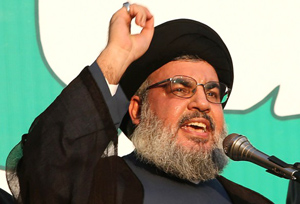Beirut, Jul 21: Hezbollah leader Sayyed Hasan Nasrallah has vowed that his resistance party will stand by the resistance in Gaza.
“ Hezbollah and the Lebanese resistance will stand by the Palestinian people’s uprising and resistance in our heart, willpower, hope and destiny,” Nasrallah said in a late-night telephone call to Hamas chief Khaled Mashaal, a Hezbollah statement said Monday.
Nasrallah also expressed Hezbollah’s support for Hamas’ “rightful demands to end the current battle.”
The statement said Mashaal’s remarks were reassuring that the Palestinian resistance “will remain steadfast and make a second victory in July, God willing.”
Nasrallah warned Israeli Prime Minister Benjamin Netanyahu that the Palestinian resistance was stronger than he thinks.
“If Netanyahu is counting on governmental and international support in his [Gaza] offensive, the resistance in Gaza relies by all means on the strongest popular support,” Nasrallah said.
The statement said Nasrallah also discussed developments on the battleground in Gaza in a telephone call with Ramadan Abdullah Shalah, the leader of the Palestinian Islamic Jihad movement.
Nasrallah stressed both “Hezbollah’s and the Islamic resistance in Lebanon’s support for the resistance in Gaza,” the statement added.





Comments
Add new comment